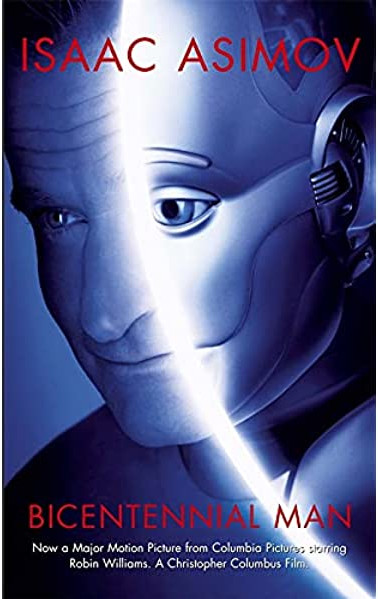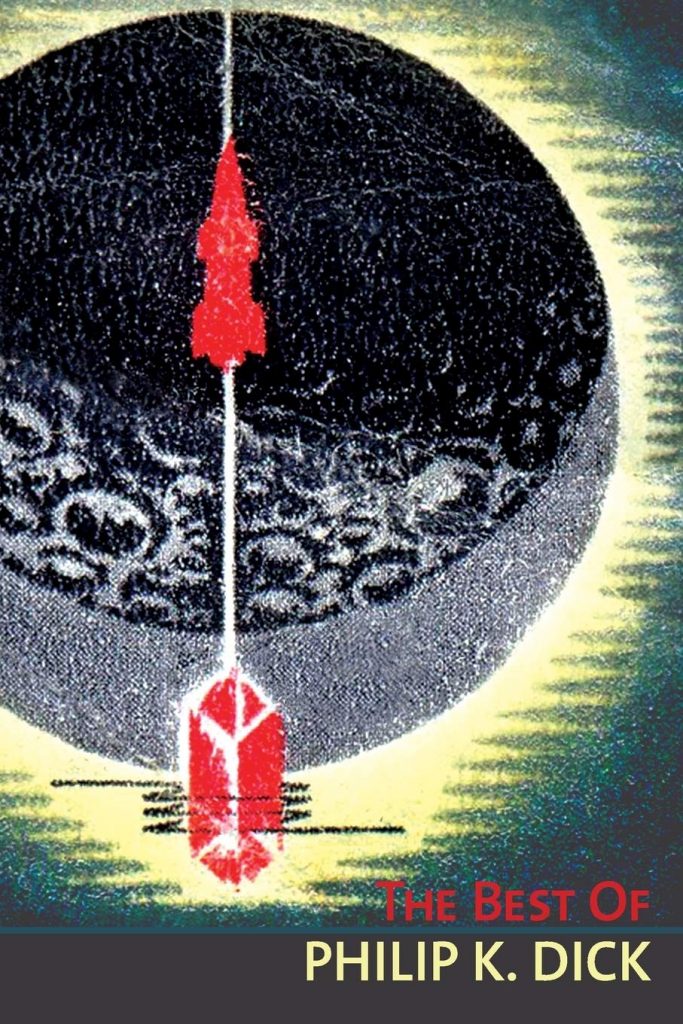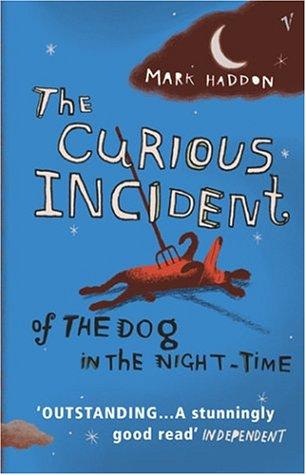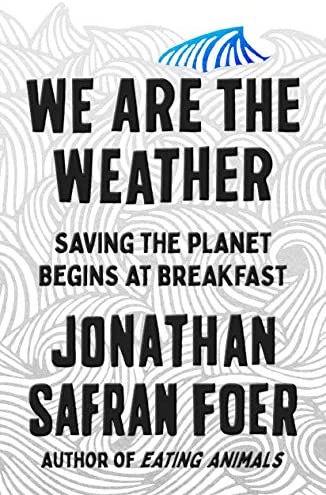
Les Incontournables : épisode 3 !
Évelyne Dargay, qui enseigne l’anglais à l’INSA Rennes, a répondu à l’appel de la Biblinsa et a sélectionné pour vous 8 livres.
D’abord, les nouvelles d’Isaac Asimov et celles de Philippe K. Dick, qu’Évelyne considère comme « des classiques pour des étudiant·es en Sciences et Techniques ».
Également, Brave new world d’Aldous Huxley et Frankenstein de Mary Shelley « sur les dérives scientifiques », ainsi que Dracula de Bram Stoker « pour son opposition entre science et superstition et sa mosaïque de textes ».
Ensuite, elle aime toujours conseiller à ses étudiant·es The Curious incident of the dog in the night time de Mark Haddon, « pour son regard décalé dans une enquête menée par le narrateur autiste ».
Enfin, du côté des essais, Évelyne a dernièrement « beaucoup aimé Saving the planet begins at breakfast de Jonathan Safran Foer, à la fois pour le thème et la beauté du texte ».
On vous laisse découvrir sa sélection 🙂

ASIMOV, Isaac, 2000. The Bicentennial Man : and other stories. London : Orion Pub Co.
« This classic collection includes the title story, acclaimed as Asimov’s single finest Robot tale, and now made into a Hollywood movie starring Robin Williams. Each of the eleven stories here sparkle with characteristic Asimov inventiveness and imagination. » (4e de couverture)
Disponible à la Biblinsa. Rb ASI

ASIMOV, Isaac, 2016. Foundation. London : HarperVoyager.
« The Foundation series is Isaac Asimov’s iconic masterpiece. Unfolding against the backdrop of a crumbling Galactic Empire, the story of Hari Seldon’s two Foundations is a lasting testament to an extraordinary imagination, one whose unprecedented scale shaped science fiction as we know it today.
The Galactic Empire has prospered for 12,000 years. Nobody suspects that the heart of the thriving Empire is rotten, until psychohistorian Hari Seldon uses his new science to foresee its terrible fate.
Exiled to the desolate planet Terminus, Seldon establishes a colony of the greatest minds in the Empire, a Foundation which holds the key to changing the fate of the galaxy.
However, the death throes of the Empire breed hostile new enemies, and the young Foundation’s fate will be threatened first. » (4e de couverture)
Disponible à la Biblinsa. Rb ASI

DICK, Philip K., 2013. The Best of . Echo Point Books & Media.
« Philip K. Dick didn’t predict the future- he summoned the desperate bleakness of our present directly from his fevered paranoia. Dick didn’t predict the Internet or iPhones or email or 3D printers, but rather he so thoroughly understood human nature that he could already see, even at the advent of the transistor, the way technology would alienate us from each other and from ourselves. He could see us isolated and drifting in our own private realities even before we had plugged in our ear buds. He could see, even in the earliest days of space exploration, how much of our own existence remained unexplored, and how the great black spaces between people were growing even as our universe was shrinking.
Philip K. Dick spent his first three years as a science fiction author writing shorter fiction, and in his lifetime he composed almost 150 short stories, many of which have gone on to be adapted into (slightly watered down) Hollywood blockbusters. Collected here are thirteen of his most Dickian tales, funhouse realities with trap doors and hidden compartments, the literary equivalent of optical illusions, tricks of perspective. » (4e de couverture)
Disponible à la Biblinsa. Rb DIC

HUXLEY, Aldous, 2021. Brave new world. Paris : Belin.
« Et s’il existait une pilule pour atteindre le bonheur ?
Eugénisme, état souverain, addiction, rien n’est épargné aux lecteurs qui osent plonger dans le meilleur des mondes. Avec l’une des plus grandes oeuvres de science-fiction du XXe siècle, Aldous Huxley se fait critique du monde moderne et donne le la à toutes les dystopies d’hier et d’aujourd’hui. » (4e de couverture)
Disponible à la Biblinsa. Rb HUX

SHELLEY, Mary, 2012. Frankenstein. London : Penguin.
« A twisted, upside-down creation myth, Mary Shelley’s chilling Gothic tale lays bare the dark side of science, and the horror within us all. It tells the story of Victor Frankenstein, who plunders graveyards to create a new being from the bodies of the dead – but whose botched creature causes nothing but murder and destruction. Written after a nightmare when its author was only eighteen, Frankenstein gave birth to the modern science fiction novel. » (4e de couverture)
Disponible à la Biblinsa. Rb SHE

« When Jonathan Harker visits Transylvania to help Count Dracula with the purchase of a London house, he makes a series of horrific discoveries about his client. Soon afterwards, various bizarre incidents unfold in England: an apparently unmanned ship is wrecked off the coast of Whitby; a young woman discovers strange puncture marks on her neck; and the inmate of a lunatic asylum raves about the ‘Master’ and his imminent arrival. In Dracula, Bram Stoker created one of the great masterpieces of the horror genre, brilliantly evoking a nightmare world of vampires and vampire hunters and also illuminating the dark corners of Victorian sexuality and desire. » (4e de couverture)
Disponible à la Biblinsa. Rb STO

HADDON, Mark, 2004. The curious incident of the dog in the night-time. London : Vintage Books.
« Christopher John Francis Boone knows all the countries of the world and their capitals and every prime number up to 7,057. He relates well to animals but has no understanding of human emotions. He cannot stand to be touched. And he hates the color yellow.
The improbable story of Christopher’s quest as he investigates the suspicious death of a neighborhood dog makes for one of the most captivating, unusual, and widely heralded novels in recent years. »
Disponible à la Biblinsa. Rb HAD

FOER, Jonathan Safran, 2019. We are the weather : saving the planet begins at breakfast. New York : Farrar, Straus and Giroux.
« Some people reject the fact, overwhelmingly supported by scientists, that our planet is warming because of human activity. But do those of us who accept the reality of human-caused climate change truly believe it? If we did, surely we would be roused to act on what we know. Will future generations distinguish between those who didn’t believe in the science of global warming and those who said they accepted the science but failed to change their lives in response ?
In We Are the Weather, Jonathan Safran Foer explores the central global dilemma of our time in a surprising, deeply personal, and urgent new way. The task of saving the planet will involve a great reckoning with ourselves—with our all-too-human reluctance to sacrifice immediate comfort for the sake of the future. We have, he reveals, turned our planet into a farm for growing animal products, and the consequences are catastrophic. Only collective action will save our home. And it all starts with what we eat—and don’t eat—for breakfast. » (4e de couverture)
Disponible à la Biblinsa. 333.7 FOE
Si vous aussi vous avez envie de partager vos coups de coeur, contactez-nous !
La team Biblinsa